Camping is a popular outdoor activity that allows you to disconnect from the hustle and bustle of everyday life and connect with nature. While there are various ways to camp, one essential item for any camping trip is a reliable stove to cook your meals.
When it comes to choosing a camping stove, two options often come up: butane and propane stoves. Both of these fuels have their own advantages and disadvantages, and choosing between them can be a tough decision. In this guide, we will discuss the differences between butane and propane camp stoves to help you make an informed decision.
Butane Camp Stoves
Characteristics
Butane, a highly flammable gas, is commonly stored in pressurized canisters. It is widely available and often comes in small, lightweight canisters, which makes it a popular choice among backpackers and hikers. Due to its efficient combustion, butane produces a clean and consistent flame, making it ideal for outdoor cooking and heating purposes. Additionally, its low boiling point allows for easy vaporization, ensuring optimal performance even in colder temperatures. So, whether you’re planning a camping trip or a weekend adventure in the great outdoors, consider the convenience and reliability of butane for all your portable energy needs.[2]
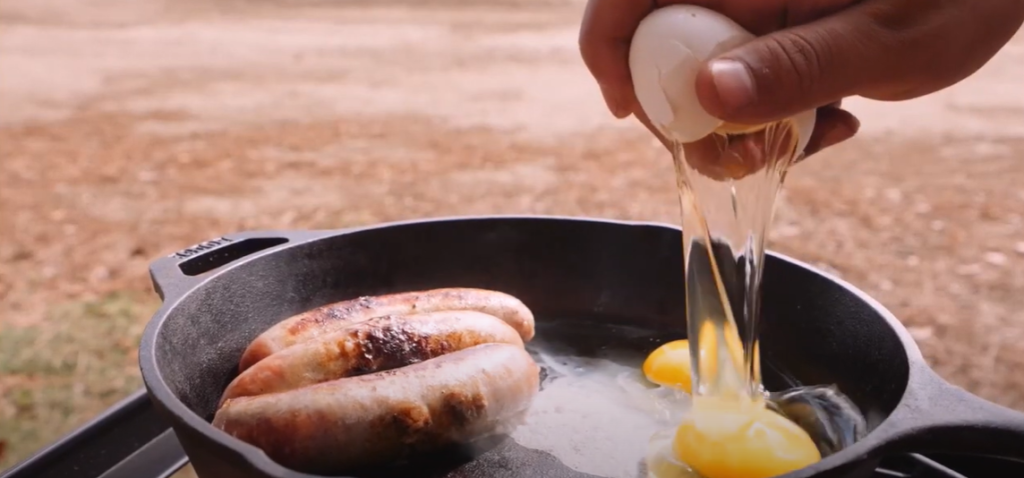
Advantages
One of the main advantages of butane camp stoves is their compact size and lightweight nature. They are incredibly portable, taking up minimal space in your camping gear, which is especially convenient for those long backpacking or hiking trips. The availability of butane at most sporting goods stores also adds to its appeal, as it ensures a readily accessible and cost-effective fuel option for outdoor enthusiasts.
Moreover, the precise temperature control offered by a butane stove allows for not only efficient cooking but also the preparation of more delicate dishes. Whether you’re simmering a flavorful sauce or sautéing vegetables to perfection, the versatility of a butane stove opens up a whole new world of culinary possibilities in the great outdoors. So, if you’re looking to elevate your camping cooking experience, a butane camp stove is definitely worth considering![2]
Disadvantages
While butane is generally considered an efficient fuel source, it does have its limitations that are important to consider. One of the main disadvantages of using butane camp stoves is their unsuitability for extreme weather conditions. This is due to the low boiling point of butane, which can hinder proper vaporization in very cold temperatures. Consequently, igniting and maintaining a flame can become challenging in such environments. Additionally, it’s worth noting that butane canisters are not refillable, which means that for each camping trip, you will need to purchase new canisters. This not only leads to more waste but also adds to the overall expenses associated with using butane as a fuel source. Therefore, it’s important to weigh these factors when deciding on the most appropriate fuel choice for your outdoor adventures.[2]
Limitations
When it comes to limitations, butane camp stoves have a few key ones that are important to keep in mind. Firstly, while butane is widely available at most sporting goods stores, its availability may be limited in more remote areas or smaller towns. This can make it challenging to find fuel for your stove when needed. Furthermore, the compact size of butane canisters means that they have a relatively short burn time compared to larger fuel canisters, which may not be ideal for longer camping trips. Lastly, due to its pressurized nature, butane canisters must be transported and stored with care to avoid any accidents or leakage. So, if you’re planning on using a butane camp stove, make sure to follow proper safety precautions to avoid any mishaps.[2]
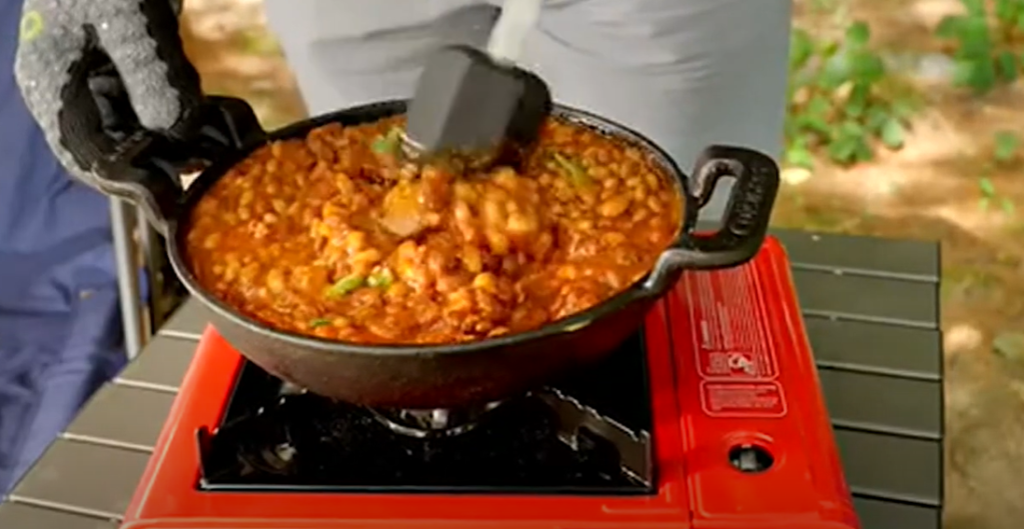
Propane Camp Stoves
Characteristics
Propane, a widely popular fuel choice for camping stoves, offers numerous advantages. It is typically stored in larger, refillable canisters, ensuring a long-lasting fuel supply during extended outdoor adventures. Whether you’re embarking on a multi-day camping trip or planning an outdoor cooking session with friends, propane’s ability to provide a consistent and reliable fuel source is unmatched.
With propane as your fuel of choice, you can enjoy the convenience and efficiency it brings to your camping adventures. Say goodbye to the hassle of constantly refilling smaller canisters and embrace the reliability of a larger propane supply. Whether you’re grilling up a delicious meal or staying cozy in your tent, propane is there to ensure a seamless and enjoyable camping experience.[4]
Advantages
One of the main advantages of propane camp stoves is their durability and ability to withstand extreme weather conditions. Whether you’re camping in the snow or during a summer heatwave, propane will continue to perform consistently, making it a reliable fuel choice for any adventure. Moreover, the larger size of propane canisters allows for longer burn times compared to butane canisters, making it a more practical option for extended camping trips. Additionally, the refillable nature of propane canisters means less waste and lower expenses in the long run. So, if you’re someone who frequently enjoys outdoor adventures, investing in a propane camp stove may prove to be a cost-effective decision.[4]
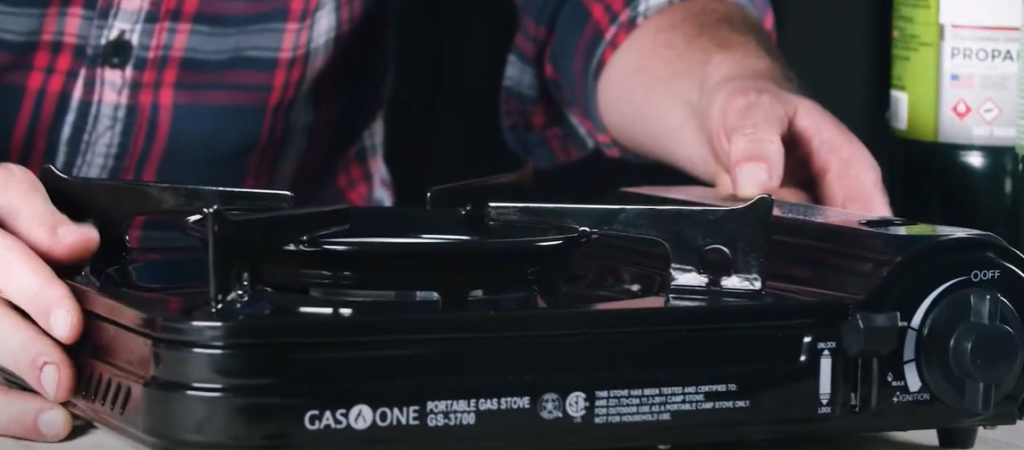
Disadvantages
While propane offers various benefits, such as efficient fuel combustion and high heat output, there are some limitations that are important to consider. One of the main disadvantages of propane camp stoves is their heavier weight and larger size due to the size of the canisters. This increased weight and bulkiness can make them less portable compared to butane stoves, which may not be ideal for long backpacking or hiking trips where minimizing weight and space is crucial. Additionally, while refillable canisters reduce waste in the long run, they do require more effort and planning compared to the convenience of purchasing pre-filled butane canisters.
Furthermore, it’s worth noting that propane canisters may be more widely available in certain regions, while butane canisters may be more commonly found in others. This availability factor can influence the decision-making process when choosing a camp stove. Additionally, the cost of propane canisters may vary depending on the location and demand, whereas pre-filled butane canisters often have standardized pricing.[4]
Limitations
Propane camp stoves also have some limitations that are important to keep in mind. One of the main limitations is the availability of propane in more remote or less populated areas. While it may be easy to find propane at most sporting goods stores, this might not be the case when venturing off the beaten path. Additionally, due to its higher boiling point and pressure level, propane canisters must be stored and transported with caution to prevent any accidents or leakage. Proper safety measures must be followed to ensure a safe and enjoyable camping experience with propane camp stoves.[4]
Comparison between Butane and Propane
Fuel Efficiency
When it comes to fuel efficiency, both butane and propane have their own unique strengths and weaknesses. Butane, known for its higher heat output, is often preferred for cooking purposes that require precise temperature control. Its ability to provide consistent and intense heat makes it a top choice among chefs and avid cooks. However, one potential drawback of butane is its low boiling point, which can pose challenges when used in extremely cold weather conditions.
On the other hand, propane offers a more reliable option for colder temperatures due to its higher boiling point. This makes it an excellent choice for outdoor activities such as camping, where temperatures can fluctuate. Despite not having the same high heat output as butane, propane is still capable of delivering sufficient heat for most cooking tasks. It may not provide the same level of precision in temperature control, but it remains a versatile and widely-used fuel option.[1]
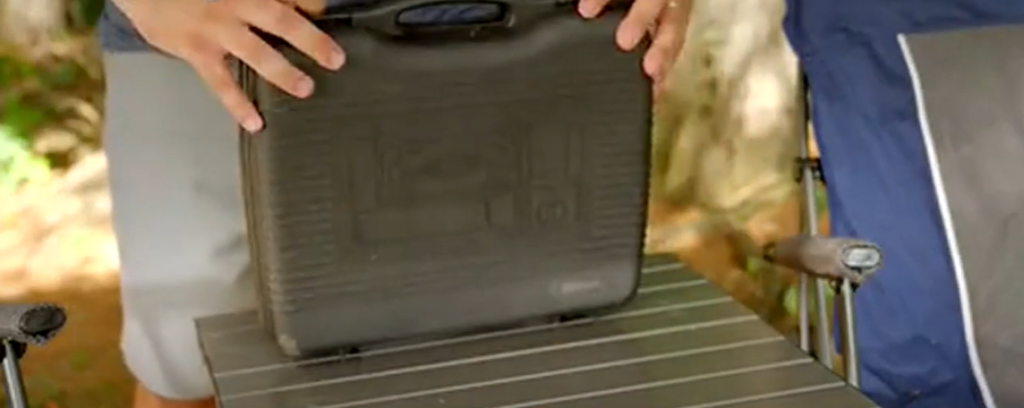
Temperature Performance
When it comes to performance in different temperatures, both butane and propane have their own unique advantages. Butane is known for its high heat output, making it an ideal choice for cooking tasks that require precise temperature control. However, due to its low boiling point, butane may struggle to perform in extremely cold temperatures.
On the other hand, propane offers a more reliable option for colder conditions due to its higher boiling point. This makes it a popular choice among campers and outdoor enthusiasts, as it can continue to perform consistently even in chilly weather. While it may not have the same high heat output as butane, propane remains an efficient and versatile fuel option for various temperature conditions.[1]
Portability and Weight
When it comes to portability and weight, butane camp stoves have a clear advantage over propane stoves. The smaller size and lighter weight of butane canisters make them more suitable for backpacking, hiking, and other outdoor activities that require minimal gear. On the other hand, the larger size and weight of propane canisters may be less convenient for long-distance trips where minimizing weight and space is crucial.
However, it’s worth noting that butane canisters are not refillable, meaning they must be replaced once they run out. This could lead to more waste and expenses in the long run compared to refillable propane canisters. Additionally, while propane may be heavier and bulkier, its durability and ability to withstand extreme conditions make it a reliable fuel choice for longer camping trips.[1]
Availability and Cost
In terms of availability and cost, both butane and propane have their own advantages. Butane canisters are more readily available at most sporting goods stores, making them a convenient option for last-minute camping trips or emergencies. However, they may also be more expensive compared to refillable propane canisters in the long run.
Propane, on the other hand, may be more challenging to find in remote or less populated areas. However, its refillable nature allows for cost savings in the long run as you only need to purchase the canister once and then simply refill it when needed. Additionally, due to its higher heat output and longer burn time, propane may require fewer canisters overall compared to butane.[1]
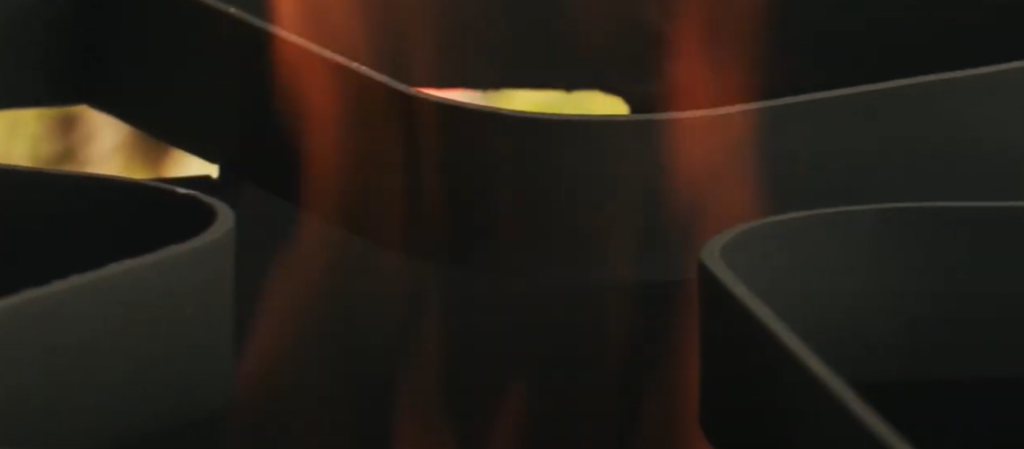
Safety Considerations
Propane and butane, both highly flammable gases, require strict adherence to safety precautions when utilized as fuel sources for outdoor activities. By considering the following important factors, you can ensure a safe experience:
- Proper storage and transportation of canisters: During transport, it is crucial to keep the canisters upright and securely fastened to prevent the occurrence of leaks or potential accidents.
- Ventilation: To mitigate the risk of gas accumulation and carbon monoxide poisoning, it is essential to provide adequate ventilation when operating a camp stove. This can be achieved by setting up the stove in a well-ventilated area, such as an open space or under a canopy.
- Fire safety: As an additional safety measure, have a fire extinguisher or a source of water readily available in close proximity to the cooking area. This ensures prompt action in case of any unexpected incidents. Additionally, exercise caution when igniting and extinguishing the stove, as these are critical moments where accidents can occur.
- Regular leak checks: Prior to using a propane or butane camp stove, routinely inspect the equipment for any indications of leakage, such as hissing sounds or the distinct smell of gas. If a leak is suspected, it is imperative to discontinue using the stove immediately and seek professional assistance to rectify the issue.[3]
In addition to the above considerations, it is vital to carefully follow the manufacturer’s instructions for the proper usage and maintenance of your camp stove. By doing so, you can ensure the safe operation of the equipment and prevent any potential accidents from occurring.
Cost Comparison
When it comes to cost, both butane and propane have their own factors that may affect the overall expense. For butane, the cost may vary depending on the brand and size of canister purchased. As mentioned earlier, while they may be more convenient for short trips, the need for frequent replacements can add up in terms of cost in the long run.
For propane, the initial investment may be higher due to the cost of a refillable canister. However, as mentioned earlier, the refillable nature of propane ultimately leads to cost savings in the long run. Additionally, due to its longer burn time and higher heat output, fewer canisters may be required overall compared to butane.
Ultimately, the cost comparison between butane and propane may vary depending on individual usage and preferences. It is essential to consider your specific needs and budget when deciding between the two options. Additionally, it may be beneficial to conduct further research and compare prices at various retailers to make an informed decision.[3]
User Preferences and Recommendations
In the end, the choice between butane and propane camp stoves ultimately boils down to user preferences and specific needs. Both options have their own advantages and considerations, making them suitable for different types of outdoor activities.
In general, it may be beneficial to have both options available for different types of trips and activities. This allows for a more versatile and flexible approach, ensuring that you have the right fuel source for any camping adventure. Ultimately, whether you choose butane or propane, proper usage and safety precautions are crucial in ensuring an enjoyable and safe outdoor experience.[3]
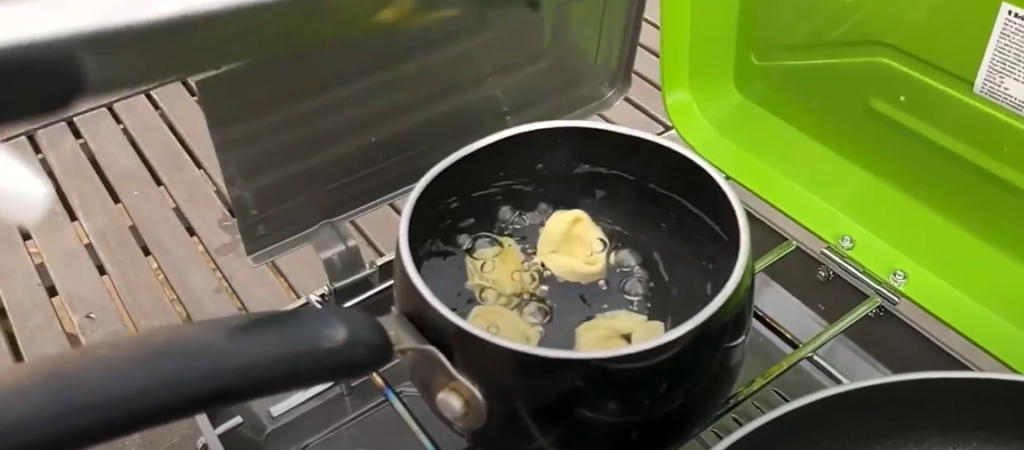
FAQ
What is the best fuel for a camping stove?
When it comes to choosing the best fuel for a camping stove, it ultimately boils down to personal preferences and specific needs. Let’s dive a little deeper into this topic.
Butane is a popular choice for camping stoves due to its high energy content and efficient combustion. It is commonly available in portable canisters, making it convenient for outdoor enthusiasts. Plus, butane performs well in colder temperatures, making it an excellent option for winter camping adventures.
On the other hand, propane offers its own set of advantages. It provides a higher heat output compared to butane, which makes it ideal for cooking meals quickly or boiling water faster. Propane is also widely available and can be found in various sizes of refillable tanks or disposable canisters, giving campers more flexibility in fueling their stoves.
What are the disadvantages of a butane stove?
Some potential disadvantages of a butane stove may include its lower heat output compared to propane and the need for frequent canister replacements, which can add up in terms of cost. Additionally, butane may not perform as well in extreme weather conditions. However, these factors may vary depending on individual usage and preferences.
Is butane better than propane for a portable grill?
This ultimately depends on your specific needs and preferences. Butane may be more convenient for short trips due to its compact size, but propane offers a longer burn time and higher heat output, making it suitable for more extended trips or larger groups. It is recommended to consider the size of your grill and how frequently you plan on using it when choosing between butane and propane as a fuel source. Additionally, it may be beneficial to have both options available for different types of outdoor activities.
Why use butane instead of propane?
Butane may be preferred over propane for its compact size, making it more convenient for short trips or solo travelers. It also has a lower boiling point, which allows it to function better in colder conditions. However, as mentioned earlier, propane offers a longer burn time and higher heat output, making it suitable for longer trips or larger groups.
Why is propane preferred over butane?
Propane may be preferred over butane for its longer burn time and higher heat output, making it suitable for longer trips or larger groups. It is also more readily available in many locations and has a lower boiling point than butane, allowing it to function better in colder conditions. Additionally, the refillable nature of propane can lead to cost savings in the long run compared to frequently purchasing butane canisters.
Which is safer butane or propane?
Both butane and propane can be used safely as long as proper usage and safety precautions are followed. However, propane may be considered slightly safer due to its lower boiling point, making it less likely to cause an explosion in case of a leak. It is essential to regularly inspect your equipment for any signs of leakage and exercise caution when handling or using the stove. If a leak is suspected, it is imperative to discontinue using the stove immediately and seek professional assistance to rectify the issue.
Does butane burn faster than propane?
Butane may burn faster than propane due to its lower boiling point, which results in a higher vapor pressure and quicker fuel release. However, this may vary depending on individual usage and the specific camping stove model. Additionally, butane has a lower heat output compared to propane, so more butane may be required overall for the same level of heat. Proper usage and maintenance of the stove can also affect burn time.
Why is propane the best?
Propane may be considered the best option for camping stoves due to its longer burn time, higher heat output, and availability in most locations. It is also refillable, which can lead to cost savings in the long run compared to frequently purchasing butane canisters. However, individual preferences and specific needs may vary, so it is recommended to consider all factors before determining the best fuel for your camping stove.
Useful Video: Butane vs Propane Stove: Which is Better for Camping?
Conclusion
In conclusion, both butane and propane can be suitable fuel options for camping stoves, depending on individual preferences and specific needs. Butane may be preferred for its compact size and lower boiling point, while propane offers a longer burn time and higher heat output. It is recommended to consider the type of outdoor activities you engage in, the duration of your trips, and the size of your camping group when choosing between butane and propane. Ultimately, proper usage and safety precautions are crucial in ensuring an enjoyable and safe outdoor experience with either fuel option. So, choose the right fuel for your needs, pack up your gear, and get ready for a memorable camping adventure!
References:
- https://www.advnture.com/features/butane-vs-propane
- https://wildernessredefined.com/butane-vs-propane-camp-stove/
- https://cheaprvliving.com/kb/propane-versus-butane-stoves/
- https://hikersdaily.com/propane-vs-butane-camp-stove/


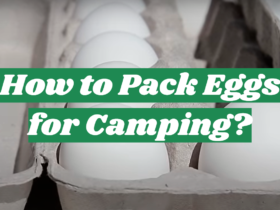


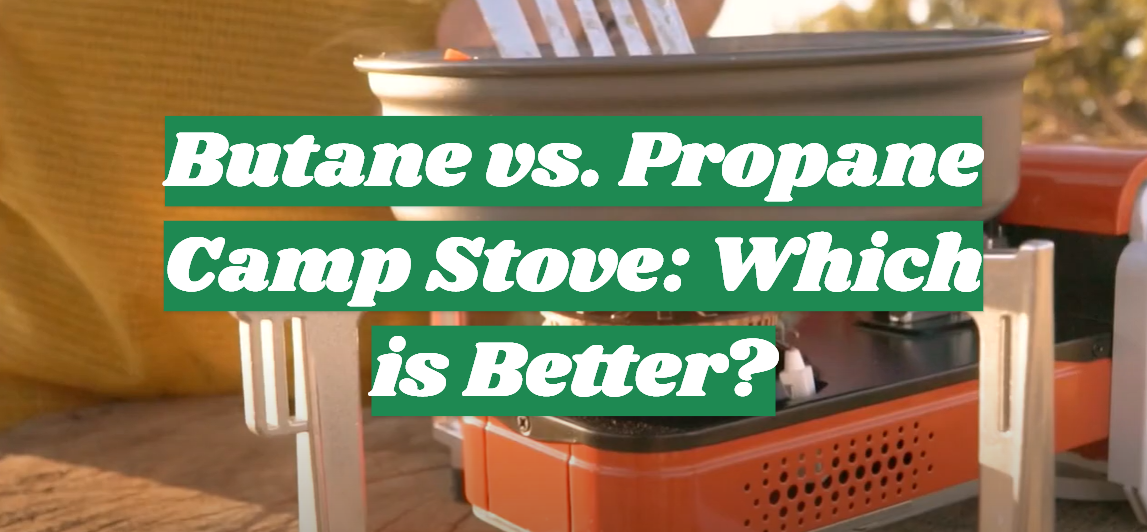
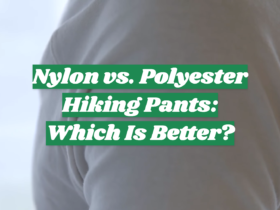
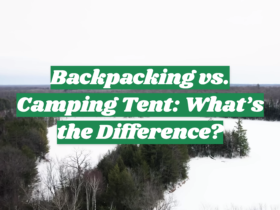
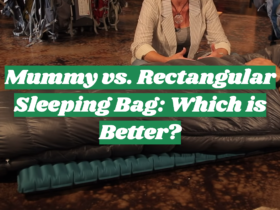
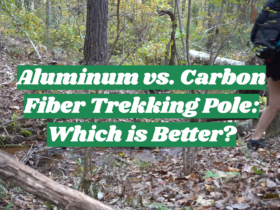
Leave a Review